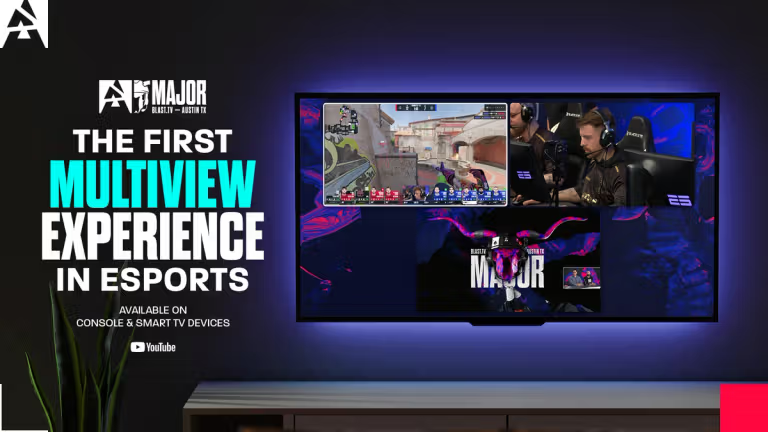
Esports Gambling And Skin Betting: Is It Good Or Bad For The Industry?
Esports gambling has quickly become a big talking point within the video game industry in recent years. Not only has the growth of esports exploded, but so has the opportunity to make profit from within it. There are now many looking to benefit from the esports industry, and one of the biggest growing sectors of the industry is gambling.
Like with traditional gambling, there are a lot of concerns over the damage that could be done to fostering such an industry within esports, but at the same time, there’s a lot to gain in terms of revenue and overall growth.

In this article, we take a look at some of the benefits and risks associated with bringing gambling to esports, and also some of the issues that have so far been unique to esports gambling.
The Potential Benefits Of Esports Gambling
Let’s first talk about the potential benefits from esports gambling. As you’d expect, many of the benefits are related to revenue and financial gain, but this additional revenue could do wonders to the esports industry as a whole.
When we look at traditional sports, it’s clear that there is already a very strong system in place for many different sports leagues – there are self-sustaining billion dollar businesses within football, basketball, tennis, and many other sporting events.
Esports, on the other hand, is only just standing on its two feet. The esports industry has a long way to go before its strong and healthy enough to withstand the test of time without outside investments.

This is where esports betting could help tremendously. With additional revenue coming from esports gambling, money could be put back into the industry to help fuel the industry. There are a variety of cases where esports gambling revenue has been seen to help support the industry. CS:GO is right now the biggest game that has benefited from esports gambling.
In the past, several teams have been sponsored by gambling websites. One such example is NiP’s partnership with Betway. Unfortunately, this type of partnership faced several limitations: an example is Riot’s regulations on not allowing any organization with an LCS team to have a gambling sponsorship. However, other teams that have strictly stuck to CS:GO have had success with picking up gambling sponsorships too, and it doesn’t stop there.
We have also noticed that several esports betting websites and skin gambling sites, have been responsible for growing the viewership of CS:GO tournaments and events. Some gambling companies have also hosted their own tournaments to promote their brand. These tournaments have provided an opportunity for new teams to get their name on the map.
If careful regulations were placed down, all esports titles could benefit from the gambling industry in the following ways:
- More support for lower-tier tournaments in teams in the form of events.
- Sponsorship deals to help organizations that aren’t constantly winning.
- Gambling has proven to increase esports viewership, which indirectly helps the esports industry grow.
Esports Betting & Skin Gambling: The Risks And Regulations That Must Be Considered
Now that we’ve had a look at the benefits from esports gambling, it’s time to look at the potential risks that are present and the regulations that could be introduced to remove these risks.
One of the biggest issues with the esports gambling industry is the entire skin gambling debacle. For those unaware, skin gambling provides gamers of all ages to bet on esports matches or casino style games for the chance to win big.

The word ‘skins’ refers to cosmetic overhauls, or cosmetic skins for items in games. These items can be opened by playing the games or paying for them through micro-transactions. These skins often have a high real monetary value tied to them because they can be very rare.
Skin gambling isn’t necessarily any different from any other gambling on the surface – people can put skins onto a website and exchange those skins for credits. Those credits can then be spent to gamble, and any winnings can be withdrawn as skins.
When you look deeper into all of the issues surrounding skin gambling, two major problems arise. Firstly, most of these skin gambling sites on the web do not have age gates or ID verification. This may give underage gamers the chance to gamble for real money. Gambling age restrictions are placed on traditional betting sites for a very important reason, but skin gambling websites prey on the young because they sit in a legal grey area.
Because users on skin gambling sites aren’t depositing real money, these websites can claim that their users aren’t actually gambling. Truthfully, real money exchanges happen to get the skins in the first place, and any cashed out skins are then transferred into real money via third party websites. Skin gambling websites for the most part may as well be straight up online casinos.
The second major issue with skin gambling is that they aren’t regulated. A skin gambling website could claim that they have ‘provably fair’ odds on all of their games, but it’s been proven in the past these claims have been false. There are too many examples online that showcase how odds can be adjusted by the website owners and the provably fair odds can be switched on and off on request.

In a nutshell, here are the two major issues with esports skin gambling websites currently.
- Websites known as skin gambling sites exist that give underage gamers the chance to gamble.
- No regulations are set for skin gambling, which makes it easy for odds to be rigged.
How Esports Gambling And Skin Betting Needs To Change
If esports gambling is to stay, a range of regulations need to be brought onboard. Firstly, skin gambling websites need to go. Video game developers that release skins for the games that these skin gambling websites are based on must pursue these websites with cease and desist orders. Companies that allow these websites to stay online without proper regulation should be sued or action should be taken against them.

All future esports gambling websites need to be regulated just like traditional betting websites are. This means that esports gambling sites will definitely need ID verification and will need to be probably fair and officially regulated.
Finally, if skin gambling sites are to stay, the developers for the games the websites are based on need to acknowledge these sites exist and they need to include in their game age rating that their game gives people the opportunity to gamble. Once again, skin gambling websites should be regulated just like all other traditional gambling sites are.
Skin Gambling: Your Opinion Matters!
What are your thoughts on esports and skin gambling? Do you think that there could be a future where esports gambling sits amongst traditional sports betting sites? Let us know!












